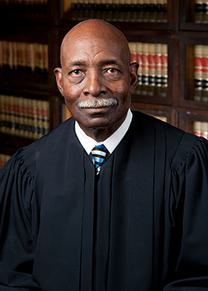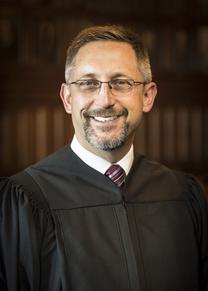
If Joseph Corcoran had been sentenced to death just a few miles to the east, across the border in Ohio instead of in Fort Wayne, Indiana, it’s likely that a court would have barred his execution. Ohio law prevents a person with a serious mental illness (SMI) at the time of their crime, defined as schizophrenia, schizoaffective disorder, bipolar disorder, or delusional disorder, from being put to death. Mr. Corcoran, who has a long history of paranoid schizophrenia diagnoses by at least five different doctors, volunteered for execution and believes that prison guards are torturing him with an ultrasound machine. But Indiana has no SMI law, and Mr. Corcoran is scheduled for execution before sunrise on Wednesday, December 18 — the state’s first execution in 15 years. Unlike all other active death penalty states, journalists will not be allowed to observe. Indiana’s effort to restart executions has provoked serious concerns about Mr. Corcoran’s mental competency, his right to have a spiritual advisor present in the death chamber, and the state’s lack of transparency. Spiritual groups, victims’ family members, and the original prosecutor in the case all favor stopping Mr. Corcoran’s execution.
“The Torture That Is Not Real”
Evidence of Mr. Corcoran’s serious mental illness dates to his early childhood, including self-isolation, self-harm, and “extreme paranoia.” At age 22 in 1997, he shot his brother, his sister’s fiancé, and two friends after overhearing the men talking about him. He immediately admitted guilt and asked a neighbor to call the police. Before trial, he rejected a plea deal, saying he would only agree if the state “would sever his vocal cords first because his involuntary speech allowed others to know his innermost thoughts.” Five doctors who diagnosed him with schizophrenia concluded that he was incompetent to stand trial or waive his appeals, but courts permitted him to do both even as they acknowledged his delusions.
“Corcoran is under the paranoid delusion that prison guards are torturing him with sound waves. As a result, Corcoran wants the State to execute him in order to end the pain. I am not willing to accommodate him.”

To determine whether a person is competent to be executed, courts ask only whether the person has a “rational understanding” of their punishment — a low standard open to interpretation that has resulted in the execution of many people with evidence of severe mental illness. When a mentally ill death-sentenced prisoner seeks to waive appeals and “volunteer” for execution, courts might not even conduct a competency hearing, because Indiana law requires the prisoner’s approval for any filings challenging an execution. For this exact reason, Mr. Corcoran is scheduled for execution based on a competency determination from twenty years ago. In a recent piece of writing titled “Electronic Harassment: A Whistle-blower Report,” Mr. Corcoran described his belief that the Indiana State Prison uses a secret ultrasound machine to control his thoughts and sleep. But no court has held a hearing on that evidence; the Indiana Supreme Court ruled by a 3 – 2 vote on December 5 that his defense attorney’s petitions for a competency hearing could not be considered because Mr. Corcoran did not authorize any efforts to delay his execution.
Mr. Corcoran “lacks any rational understanding of his impending execution — he simply wants to expedite the ending of the torture that is not real.”
In dissent, Indiana Supreme Court Justice Christopher Goff, joined by Chief Justice Loretta Rush, argued that the court should have stayed Mr. Corcoran’s execution and ordered a psychiatric examination to comply with constitutional requirements for competency. “To ignore these findings now and proceed with execution without a current competency evaluation amounts to enabling his delusions — a state-sanctioned escape from suffering rather than a measured act of justice,” Justice Goff wrote.
Justice Goff raised further concerns about the ability to waive appeals at all. “Allowing a person to ‘volunteer’ for execution — whether by choosing to withhold mitigating evidence at sentencing, waiving the right to appellate review, or electing not to seek post-conviction relief — threatens to undermine the state’s heightened-reliability interests in death-penalty cases…and ultimately ‘threatens to diminish public confidence in the integrity of the judicial system,’” he wrote. These comments echo Supreme Court Justice Thurgood Marshall’s warning in 1979, soon after the first executions in the modern era of the death penalty were conducted — mostly of volunteers — that “[s]ociety’s independent stake in enforcement of the Eighth Amendment’s prohibition against cruel and unusual punishment cannot be overridden by a defendant’s purported waiver.”
Justice Marshall called the volunteer process “nothing less than state-administered suicide.” A recent DPI analysis found that 87% of volunteers have known mental illness or substance abuse issues, and the rate of volunteering for execution is ten times higher than the suicide rate for the general public — but nearly identical to the rate of suicide on death row.
On December 17, the Seventh Circuit Court of Appeals denied Mr. Corcoran a stay of execution in a 2 – 1 decision. In dissent, Judge John Z. Lee wrote that the court was wrong to assume Mr. Corcoran’s competence for execution based on a two-decade-old determination of competence to waive appeals, which had used a different standard. Judge Lee wrote that the “record contains undisputed and extensive expert evidence of Corcoran’s paranoid schizophrenia and the resultant pervasive delusions from which he has long suffered.”
When asked if Mr. Corcoran is mentally ill, Governor Eric Holcomb acknowledged that “he is,” but did not say whether he will grant clemency on that basis. “I will reserve my final judgment until every step, every legal recourse and step, has been exhausted,” he said.
“There is no penalty more severe — more irrevocable — than death. So, when reviewing cases imposing this penalty, justice demands not haste but precision and care. Guaranteeing this demand constitutionally requires ensuring a prisoner is competent to be executed.”

“A Hostility Toward Religion”
The Indiana Department of Corrections (IDOC) initially denied Mr. Corcoran’s request for a spiritual advisor in the execution chamber, but reversed course on December 12 after Mr. Corcoran’s attorneys filed a federal lawsuit arguing that the decision displayed “a hostility toward religion.” IDOC will now allow Reverend David Leitzel, who has known Mr. Corcoran since he was 12 years old, to pray with him in the execution chamber and have limited physical contact, such as holding his hand.
In initially denying the request, IDOC Chief Legal Officer Anna Quick had argued that “IDOC takes the anonymity of our staff very seriously and will not permit an outside person in the death chamber, as the safety, security and secrecy of those staff could be compromised.” But defense attorneys responded that “every other state that actively carries out executions as a policy matter allows spiritual advisors to be present, physically touch, and talk quietly with their spiritual charge as they are dying.” They argued that IDOC’s policy would “prohibit Mr. Corcoran’s free exercise of his Christian faith in the crucial moments leading to his passage to the afterlife.”
The same day the IDOC announced Rev. Leitzel could be present in the chamber, seventy faith leaders delivered a signed letter to Gov. Holcomb opposing Mr. Corcoran’s execution. “[W]e long to see the mercy, compassion, equity, and justice of God reflected in public policies that promote safety, human dignity, and healing for all Hoosiers,” the faith leaders wrote. In a clemency letter, Mr. Corcoran’s attorneys urged Gov. Holcomb that the “taking of Joe’s life, especially during the Christmas season, rebukes the fundamental Christian belief that all people are worthy of redemption through God’s grace and love.”
State Rep. Bob Morris, a Republican representing the Fort Wayne area where Mr. Corcoran was sentenced, also joined the chorus opposing his execution. He said that he intends to introduce a death penalty abolition bill in the 2025 session based on his belief that “only one position honors our Lord and Savior, our Creator: to protect all human life.”
“Denied Virtually Every Information Request”
Indiana’s refusal to allow journalists to witness the execution compounds the constitutional risks. Indiana is one of just two states, along with Wyoming, that entirely bars media access to executions; other states allow as many as 12 reporters to observe. Media presence is crucial because the media serves as the public’s eyes and ears, documenting how the state is using taxpayer funds and resources. In the past, media witnesses have played crucial roles in exposing botched executions, even where state officials denied any problems.
Indiana journalist Niki Kelly reported that IDOC has “denied virtually every information request related to the execution,” including “how many vials were bought, what it cost, the expiration date.” Other states have spent hundreds of thousands of dollars on execution drugs in recent years, from dubious sources such as overseas businessmen and compounding pharmacies with histories of health and safety violations. Ms. Kelly filed a complaint with the state’s Public Access Counselor to try to learn more about how Indiana obtained the drugs after a 15-year effort, but was denied any information based on recent legislative changes that restrict the counselor’s powers.
The “legislature tied the access counselor’s hands behind his back and Hoosiers have to instead file a lawsuit to get an answer…it’s clear Hoosiers won’t know what the state of Indiana spent when Corcoran takes his last breath,” Ms. Kelly wrote. “Public access and transparency have taken a beating during the process to resume executions…[and] that hurts public confidence in the system.”
“At A Loss For Words”
Officials often describe executions as “closure” for the victim’s family and the justice system — but the people closest to the case oppose Mr. Corcoran’s execution. His sister Kelly Ernst, who was also the sister of one of the victims and engaged to another of the victims, said that “his family wants a pardon,” and she and her twin sister will not attend the execution if it goes forward. “It’s not going to provide closure for anyone involved,” Ms. Ernst said. “He’s mentally ill.”
“I’m at a loss for words. I’m just really upset that they’re doing it close to Christmas. My sister and I, our birthdays are in December. I mean, it just feels like it’s going to ruin Christmas for the rest of our lives. That’s just what it feels like.”
Robert Gevers, the elected prosecutor for Allen County at the time of the crime, personally obtained the death sentence against Mr. Corcoran — but says “if it were on my plate today, I would probably act differently.”
“Times have changed, my own thinking has changed,” Mr. Gevers said. “The death penalty is retribution. That’s all it is. Saving someone’s life is grace. So, are we a society about retribution or grace?”
Casey Smith, Federal appeals court denies stay of execution for Indiana death row inmate Joseph Corcoran, Indiana Capital Chronicle, December 17, 2024; Associated Press, Indiana man who killed brother, 3 others will be put to death in state’s 1st execution in 15 years, Fox59, December 17, 2024; Casey Smith and Niki Kelly, Sister, former lawyer decry upcoming Indiana execution; prosecutor conflicted, Indiana Capital Chronicle, December 13, 2024; Niki Kelly, Death penalty process lacking accountability, transparency, Indiana Capital Chronicle, December 13, 2024; Corryn Brock, Attorneys say Joseph Corcoran’s spiritual advisor will now be allowed in the execution chamber with him, 21Alive News, December 12, 2024; Joanna Green, Laura L. Volk, and Laurence E. Komp, Clemency Letter to Governor Eric Holcomb, December 11, 2024; Casey Smith and Niki Kelly, Indiana Supreme Court justices explain why execution will go forward, December 10, 2024; Corryn Brock, Indiana Supreme Court opinion gives insight into 3 – 2 vote to deny motion to stay Corcoran execution, 21Alive News, December 10, 2024; Corryn Brock, FEDERAL LAWSUIT: Joseph Corcoran’s attorneys challenge IDOC denial to allow spiritual adviser in execution chamber, 21Alive News, December 9, 2024; Kristine Phillips, Indiana Supreme Court denies requests to stop execution of Joseph E. Corcoran, Indianapolis Star, December 6, 2024; Casey Smith, Indiana Supreme Court declines to halt execution, allow for case review, Indiana Capital Chronicle, December 5, 2024; Leah Roemer, New Resource: In Era of Secrecy, States Increasingly Restrict Media Access to Executions, Death Penalty Information Center, November 22, 2024; Leah Roemer, New Analysis: Death-Sentenced Prisoners “Volunteer” for Execution at Ten Times Civilian Suicide Rate, Death Penalty Information Center, October 24, 2024; H.B. 136 (2021); Corcoran v. State, 820 N.E.2d 655 (Ind. 2005).
